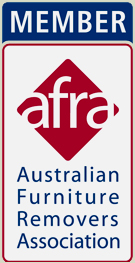International moves mark the beginning of an exciting new chapter in your life. However, this milestone can be quite daunting, even more so than any other type of relocation. Not only will you have to go through the usual stress of changing addresses, but you also need to deal with additional tasks to adjust to your new life in an entirely different country.
For you to get through this milestone smoothly, there are certain things you must remember to do and others you need to avoid to make your international relocation stress-free.
Here are seven dos and don’ts to help you get started from the expert international removalists in Melbourne & Hobart.
Do:
1. Gather information on the country you’re moving to
There are several possible reasons why you need to relocate to another country. Whether it’s because of official company business or you simply want to start fresh with your family, it is imperative that you find key information about the place you’re moving to.
Research, at the very least, can help save you the trouble of making mistakes that can be both expensive and irreversible. There are countries that have unique cultures and customs, as well as severe restrictions on clothing and behaviour, so you have to know what you can and cannot do to be on the right side of the law.
Knowing these things can make your relocation smooth-sailing and, quite possibly, the best decision you ever made.
2. Plan for your pets
Moving with pets can be a bit tricky, especially if you’re relocating abroad. You would need to deal with the necessary paperwork and vaccinations for your furry pal even before you can start arranging your own permits and visa.
Again, doing this can be a lot easier with research. Make a point to ask about the intricacies of the process from people who already experienced international removal with their animal friends. You can try to hire a pet transport firm to deal with the moving process, but you still need to find a pet-friendly house or apartment.
The key is to ask other expats who have experience in a similar situation. If you don’t know anyone personally, you can try asking your company for help or browse expat forums and other online communities in the country you’re relocating to.
3. Prepare your health care
Health care is another thing you need to think about when moving overseas. Be sure to determine whether your insurance covers your relocation or if you need to apply for a new one.
You should also notify your physician about your move and ask whether there are vaccinations you and your family need to get before traveling to your destination. You will also want to know if any medication you take is available in your new country of choice.
4. Book your international removal
Relocating overseas is quite different from moving within the same country, which means you may also need a different kind of professional help.
Unlike removalists specialising in local relocations, international removalists can arrange the transport of your belongings with at least a month’s advance notice. The extent of your advance notice will also depend on whether your move is scheduled during the removalists’ peak season, typically in Summer.
Before closing a deal with any removal company in Australia, make sure to have them visit your place first. This will allow them to determine the cost of the removal more accurately based on the size, number, and special requirements of the items that need to be transported abroad. You can also take this opportunity to talk to them about customs requirements and the potential costs of moving your household goods by plane or by sea.
Don’t:
5. Skip Decluttering
One important removal task you should never neglect for international moves is decluttering. Generally, the more belongings you have to bring overseas, the higher the cost of shipping will be. This means that downsizing your possessions will definitely help you save a lot of money.
To declutter, start by listing down the items you own and sort them according to necessity and frequency of use. If you can buy that very same item from stores in your destination country, it’s probably best to let it go. If it has a similar function with another item, it’s a good idea to get rid of it.
6. Forgo learning the language
One major reason why people fail to adjust to a foreign country after an international removal is the language barrier. English can only get you so far, so make sure to learn the local language when you move overseas.
Start by studying the local equivalent to polite phrases like “hello,” “please,” “thank you,” “sorry,” “excuse me,” and “I don’t understand.” After that, try to do research on what certain labels and signs mean. Having a dictionary handy is also good, but be sure to study intricacies and context clues in the language too, as not every word has an English equivalent.
7. Forget to double-check your papers
Documentation is an important aspect of relocating overseas. If you’re moving with your family, make sure to check whether each family member’s paperwork is accessible and updated. These documents include your passport, your birth, marriage, and adoption certificates, medical records, driving licenses, and others.
Having a digital copy of these papers will also do wonders for your move, so remember to scan and store them in the cloud or on your mobile device.
Here’s to a Stress-Free Move
Moving overseas is a major high point in your life. To make sure it turns out to be the best decision you ever made, use this article as a guide for your pre-move planning process.
Bells Removals is here to help. Send us a message to schedule an on-site visit.









Leave a Comment